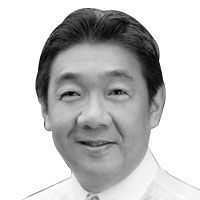Team Transitory

Inflation has moved higher across many countries amid a global reopening, supply bottlenecks, a worldwide energy crunch, higher oil prices, and surging commodity prices. Investors are thus monitoring the US Fed for prospective interest rate hikes. Domestic inflation has also climbed higher, prompting concerns that the Bangko Sentral ng Pilipinas (BSP) may have to raise rates soon. However, a number of central bankers maintain that the current episode of higher inflation is transitory in nature. BSP Governor Ben Diokno recently stated that he is part of Team Transitory.
Persistent inflation
On the other hand, a group of bankers, economists, and investors have a different view. They assert that inflation will be persistent and is here to stay for the long run. They believe that higher inflation is part and parcel of a reopening global economy. Famed investor and fund manager Paul Tudor Jones said that “inflation can be much worse than what we fear” and that he does not see this as transitory. He warned about the impact of massive fiscal and monetary stimulus on inflation. Bank of America’s global economist remarked that central banks are fighting persistent inflation that is driven by factors that are specific to the COVID-19 pandemic. Some economists have warned that inflation may last longer and worsen if central banks do not address it in time. Mohamed El Erian, chief economic adviser at Allianz, expressed the need for the Fed and other central banks to “move away from the narrative of ‘transitory’ inflation.” Instead, El Erian is advocating a policy pivot “to ensure that the current inflationary phase does not end up unnecessarily undermining economic growth, increasing inequality, and fueling financial instability.” South Korea, Norway, New Zealand, the Czech Republic, Poland, and Russia are some of the countries that have implemented policy rate hikes to mitigate the economic risks posed by higher inflation.
Pent-up demand
A number of prominent central bankers believe that higher inflation was caused by pent-up demand. Strict lockdowns worldwide resulted in a collapse in demand and a severe economic slowdown during the height of the pandemic. With the global reopening underway, there has been a surge in volume and prices, especially in the sectors that were hardest hit by the pandemic. After months of hibernation, the awakening of the global economy resulted in supply-chain disruptions and port congestions worldwide. There were also widespread shortages in computer chips, construction materials, and industrial commodities that drove input costs higher. Aside from this, the world is experiencing its worst energy crunch in decades. This can be seen in the dizzying surge of oil, natural gas, gasoline, and coal prices which contributed to higher inflation (see Energy crunch, Oct. 11, 2021). Nonetheless, governments around the world are undertaking steps to address bottlenecks that hamper the global supply chain. Many policymakers and economists maintain that price increases of this nature tend to dissipate as global economic activity normalizes.
Powell, Lagarde, Yellen: “Inflation is transitory”
Fed Chair Jay Powell, European Central Bank (ECB) President Christine Lagarde, and Treasury Secretary Janet Yellen are outspoken members of Team Transitory. Last month, Powell calmed anxious investors by announcing a dovish taper which involved a reduction in the Fed’s asset purchases starting November. In doing so, he clarified that there will be no interest hikes yet as he views the current inflation spike to be transitory (see Taper without tantrum, Sept. 6, 2021). Lagarde stated that inflation is not yet broad-based. She also cautioned against overreacting to “transitory supply shocks that have no bearing on the medium term.”
Meanwhile, Yellen said, “Supply bottlenecks have developed that have caused inflation. I believe that they’re transitory, but that doesn’t mean that they’ll go away over the next several months.”
Phl inflation stays above target
Domestic inflation for September was at 4.8 percent while year-to-date inflation settled at 4.5 percent, above the central bank’s target range of 2-4 percent. This was stoked by higher prices for transportation, gasoline, and food. Since the country is a major oil importer, there is concern that inflation will climb even higher due to the sharp rise in global oil prices. Brent crude is up 66 percent year-to-date and is trading at a three-year high. Despite the higher inflation reading, the BSP expects inflation to settle within the midpoint of its 2-4 percent target range in 2022 and 2023.
Diokno says he’s with Team Transitory
The central bank still has scheduled policy meetings in November and December. In this light, the BSP Governor said, “It would appear that there won’t be any policy rate adjustments between now and the end of the year.” Diokno believes that inflation has been driven by transitory supply-side factors, and that “there is no pressure on the demand side, such as increases in wages, transport costs, and housing.” He also stated that at this point in time, “there appears to be no justification for monetary intervention.” Since the economic recovery is still nascent, Diokno stressed that “the harm from early monetary tightening exceeds the harm of moving too late.”
Philequity Management is the fund manager of the leading mutual funds in the Philippines. Visit www.philequity.net to learn more about Philequity’s managed funds or to view previous articles. For inquiries or to send feedback, please call (02) 8250-8700 or email [email protected].
- Latest
- Trending



























